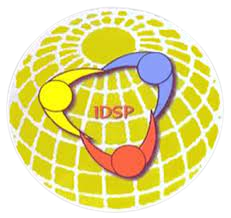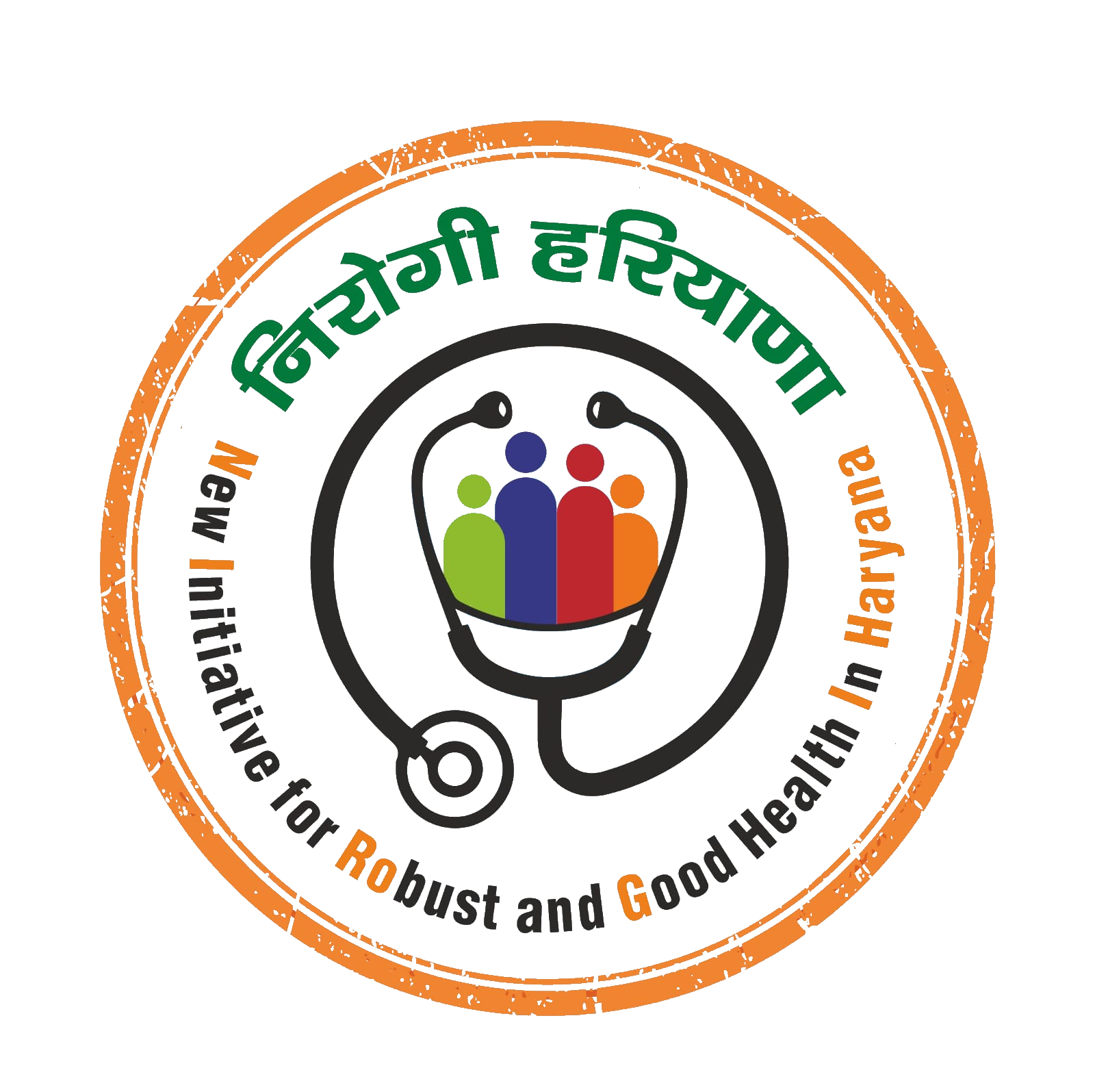Integrated Disease Surveillance Project(IDSP)

Integrated Disease Surveillance Project (IDSP) was launched by Hon’ble Union Minister of Health & Family Welfare in November 2004 for a period upto March 2010. The project was restructured and extended up to March 2012. Now it has converted into Integrated Disease Surveillance Programme (IDSP) under the umbrella of National Health Mission.
A Central Surveillance Unit (CSU) at Delhi, State Surveillance Units (SSU) at all State/UT head quarters and District Surveillance Units (DSU) at all Districts in the country have been established.
Objectives:
To strengthen/maintain decentralized laboratory based IT enabled disease surveillance system for epidemic prone diseases to monitor disease trends and to detect and respond to outbreaks in early rising phase through trained Rapid Response Team (RRTs).
Programme Components:
- Integration and decentralization of surveillance activities through establishment of surveillance units at State and District level.
- Human Resource Development – Training of District Surveillance Officers, Rapid Response Team, Epidemiologists, Microbiologists and other Medical and Paramedical staff on principles of disease surveillance.
- Use of Information Communication Technology for collection, collation, compilation, analysis and dissemination of data.
- Strengthening of public health laboratories.
- Inter sectoral Co-ordination for zoonotic diseases.
Organisation Structure:
- Central Surveillance Unit (CSU):Integrated administratively and financially with National Centre for Disease Control (NCDC), Delhi.
- State Surveillance Unit (SSU):At State Head Quarter with a regular officer identified as State Surveillance Officer (SSO). Supported by 8 contractual staff i.e State Epidemiologist, Microbiologist, Training Consultant, Veterinary Consultant, Data Manager, Consultant Finance, Entomologist, Data Entry Operator.
- District Surveillance Unit (DSU):At district level with a regular officer as District Surveillance Officer (DSO). Supported by 3 contractual staff i.e District Epidemiologist, Data Manager and Data Entry Operator.
Data Management:
Under IDSP data is collected on epidemic prone diseases on daily basis (Integrated Health Information Platform) portal. The information is collected on three specified reporting formats, namely “S” (suspected cases), “P” (presumptive cases) and “L” (laboratory confirmed cases) filled by Health Workers, Clinicians and Laboratory staff respectively. The data gives information on the disease trends and seasonality of diseases.
Whenever there is a rising trend of illnesses in any area, it is investigated by the Rapid Response Teams (RRT) to diagnose and control the outbreak. Data analysis and actions are being undertaken by respective State/District Surveillance Units
Outbreak Surveillance and Response:
- SSU, IDSP receives disease outbreak reports from the districts on daily basis.
Media Scanning and Verification Cell:
- Media Scanning and Verification Cell is functional at State Head Quarter.
- Media scanning is an important component of surveillance to detect the early warning signals. Media scanning and verification cell receives media alerts of unusual health events which are detected and verified.
Information & Communication Technology Network (ICT):
ICT plays an integral and most powerful role in implementing IDSP. One of the important components of the programme is data management, analysis and rapid communication in case of outbreaks.
IHIP Portal:
The Integrated Health Information Platform (IHIP) is a web-enabled near-real-time electronic information system. The IHIP portal is a one stop portal which has facilities for data entry, view reports, outbreak reporting, data analysis, training modules and resources related to disease surveillance. It was launched on 5th April 2021.
Key features of Integrated Health Information Platform (IHIP)
- Real time data reporting (along through mobile application); accessible at all levels (from villages, states and central level)
- Advanced data modeling & analytical tools
- GIS enabled Graphical representation of data into integrated dashboard
- Role & hierarchy-based feedback & alert mechanisms
- Geo-tagging of reporting health facilities
- Scope for data integration with other health programs
Training:
- The Training in IDSP is three-tiered:
- Master Trainers, State and District Surveillance Officers and RRT members are trained at identified National level Institutes.
- The District Surveillance Officers, Microbiologists, Epidemiologists, Medical Officers, Data Managers and Lab Technicians are trained by Master Trainers at State level. District Rapid Response Teams members are trained for Outbreak Response.
- Medical Officers, Community Health Officers, Paramedical Staff, Health Workers & Lab Technician at peripheral institutions are trained by District Surveillance officers/Medical Officers /Epidemiologists/ Data Managers at District level.
- The main focus of training for District participants is on basics of disease surveillance, concepts of epidemiology and data management, whereas the district training focuses on correct procedures of data collection, compilation and reporting and outbreak response.
- Strengthening of Laboratories:
- District laboratories are being strengthened for diagnosis of epidemic prone diseases in a phased manner. Till date 10 labs in State have been designated as District Public Health Labs. These labs are being supported by trained manpower, and an annual grant for reagents and consumables.
- A State based referral laboratory network has been established by utilizing the existing functional labs in the identified medical colleges and other major centers in the state and linking them with adjoining districts for providing diagnostic services for epidemic prone diseases during outbreaks. Presently this network has three State Referral Labs functional.
- Role of IDSP in Management of Covid-19 Pandemic:
- The State Government Notified “The Haryana Government Epidemic, COVID-19 Regulation, 2020” Under The Epidemic Disease Act 1897 On 11th March, 2020. Further State Government Has Extended ‘The Haryana Government Epidemic Disease Covid 19 Regulations Up To 31st March 2023.
- Release of Daily COVID-19 Bulletin and Weekly Status of COVID-19.
- Formulations and Dissemination of Covid-19 Guidelines/ Advisories in the State
- Lab Strengthening: Initially, NIV Pune was the only designated lab for COVID-19 testing approved by ICMR and so all samples were being sent to NIV Pune only. However, later on in the month March 2020, two RT PCR labs i.e., PGIMS Rohtak (9th March 2020) and BPS GMC, Khanpur Kalan, Sonipat (13th March 2020) were made functional. Further, State has undergone all possible efforts to expand its testing capacity by establishing 26 government.
- Establishment of State’s own WGS lab:There were challenges and issues faced in sending samples to IGIB, Delhi like delayed transportation & delayed reporting due to longer distance and overload at IGIB labs. Hence, considering the hardship faced for WGS, Next Generation Genome Sequencing Lab, Maharishi Dayanand University, Rohtak which was an established lab capable of conducting genome sequencing have been approved as INSACOG Genome Sequencing Lab by the Department of Biotechnology. Now the samples are being sent to this lab for whole genomic sequencing.
- Surveillance:Covid -19 Data (positive cases, death, RTPCR & RAT sampling) collection, compilation, collation, analysis and dissemination of data, was done for concrete feedback to all stakeholders for effective management of COVID. Rapid Response Teams are ensuring prompt investigation of such events by facilitate testing and treatment for them as per the protocol.
- State conducted 3 rounds of COVID-19 Sero-Surveys:State IDSP cell has successfully conducted 3 rounds of COVID-19 Sero – Survey in the State. 1st round in August 2020, 2nd round in October 2020 and 3rd round in September 2021 with seroprevalence of 8%, 14.8 % and 76.3% respectively.
Beneficiary:
Public
Benefits:
Public Schemes
How To Apply
Publicly Available



